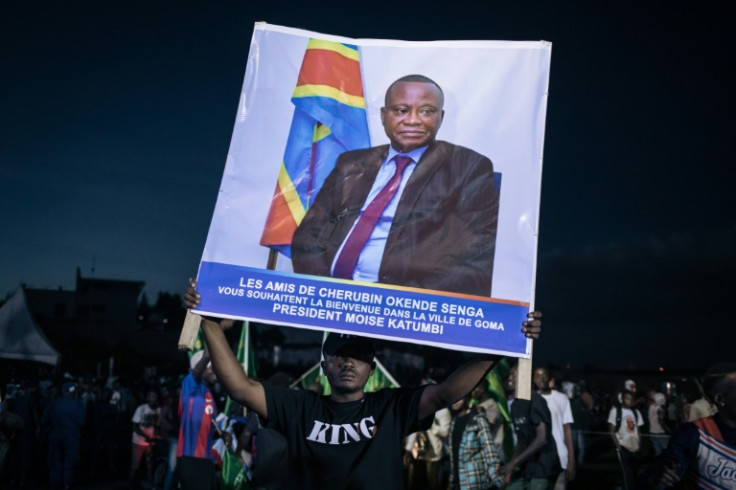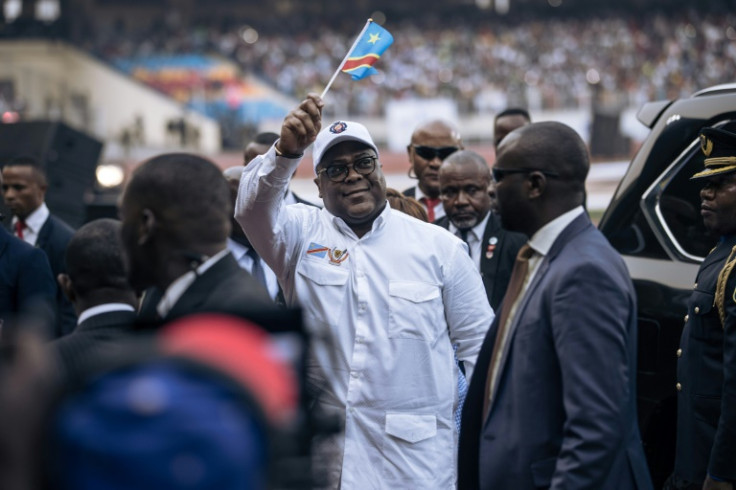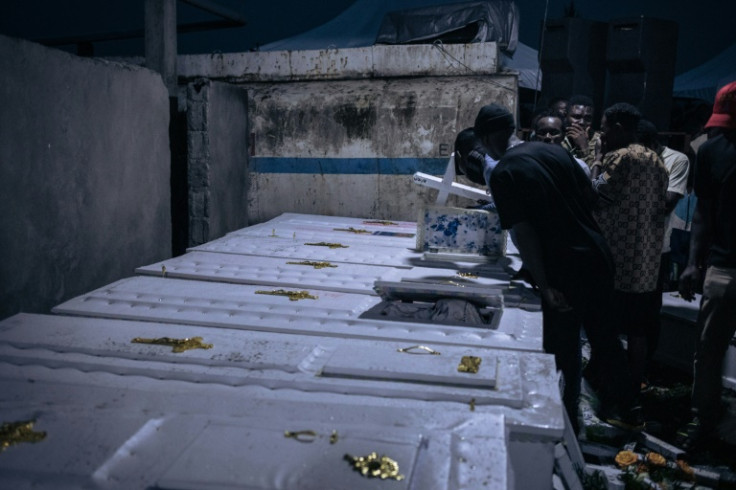
DR Congo's democracy has been backsliding ahead of elections this month, according to rights defenders, as prominent journalists languish in prison and the murder of an opposition politician remains unsolved.
President Felix Tshisekedi came to power in 2019 after a campaign criticising the rights record of his predecessor Joseph Kabila, among other issues.
But a slew of recent events have sparked concerns about the president's own record.
A former minister turned opposition member was found dead in the central African nation's capital Kinshasa in July.
A few months later, one the best-known Congolese journalists was imprisoned after the authorities accused him of spreading fake news about the murder.
"These are signs of the narrowing of the democratic space," said a rights researcher, who requested anonymity.
The Democratic Republic of Congo is scheduled to hold elections on December 20. Tshisekedi, 60, will be running for a second term.
When he first took office, the president released hundreds of political prisoners.
But initial optimism began to fade after intimidation of critics started again in 2020, the researcher said.
"This culminated in a crackdown against opposition members this year."
Opposition members regularly say they are harassed, and point to arrests they claim are politically motivated.
Despite its mineral riches, DRC is one of the poorest nations of the world, and has a history of autocratic rule.
Floribert Anzuluni, a presidential candidate and former rights activist, told AFP that repression often spikes around elections.
"It's the case today, there's a hardening of the democratic space," he said.
In a high-profile case in May, Congolese military intelligence arrested Salomon Idi Kalonda, a close advisor to opposition presidential contender Moise Katumbi.
Kalonda was accused of colluding with M23 rebels in the country's east, as well as the group's alleged backers, Rwanda. His trial is ongoing.
A month later, the body of Cherubin Okende, a former transport minister and Katumbi ally, was found riddled with bullets in Kinshasa.
The government has condemned the killing and opened an investigation.
But several analysts say the investigation has stalled.
"The justice system seems not to be doing its job," Anzuluni said.
In September, the prominent Congolese journalist Stanis Bujakera, who works for Reuters and Jeune Afrique magazine, was arrested on suspicion of spreading false information about Okende's killing.
His arrest followed a Jeune Afrique article -- which was not bylined -- that suggested that Congolese military intelligence had assassinated Okende.
The article was based on a memo that the Congolese authorities have said is fake.
Bujakera remains in prison with the trial ongoing.
Eric Nsenga, who works on human rights for ECC, a federation of Congolese protestant churches, said Bujakera's arrest "sends an image of intimidation".
Bujakera's case attracted an outpouring of international criticism. But rights defenders say arrests of lesser-known figures have gone unnoticed.
Human Rights Watch said last week that opposition member Lens Omelonga had been freed after seven months in detention. He had shared a social-media post criticising the foundation of the president's wife Denise Tshisekedi.
Fred Bauma, the executive director of Kinshasa-based think-tank Ebuteli, said repression had long gone under the radar -- especially in the east, where he highlighted cases of protesters detained arbitrarily.
In 2021, Tshisekedi placed two eastern provinces under martial law in a bid to curb militia violence.
But the policy has mostly failed, and has been criticised for facilitating a crackdown on dissent.
The president promised to roll it back after an elite army unit, in late August, massacred over 50 members of a religious sect who were planning a protest in the eastern city of Goma.
The government condemned the massacre, and a military court handed down prison sentences to several officers involved.
But several rights defenders told AFP they were frustrated with the accumulation of such cases, and apparent government impunity.
"They've been able to trick a lot of the international community," said one, accusing the government of saying the right things on the diplomatic stage but rarely following up.
One UN official agreed that there was little international will to confront abuses, saying "There's fatigue when it comes to the DRC".
A government spokesman was not immediately available for comment.









